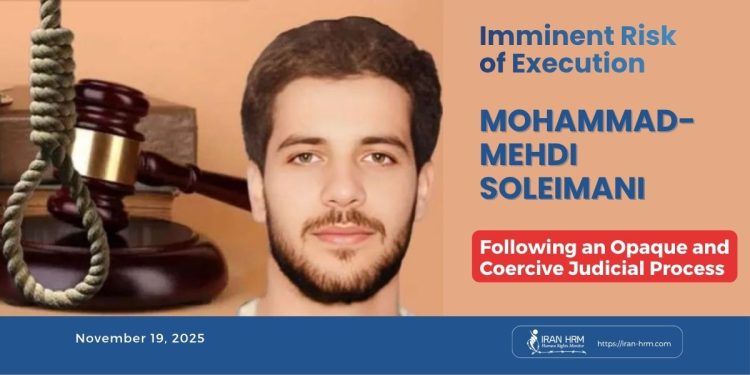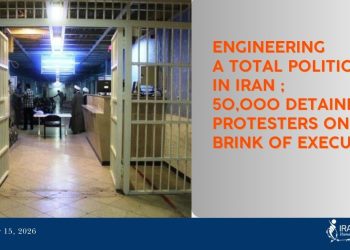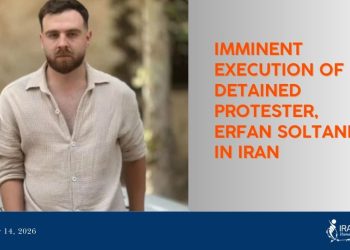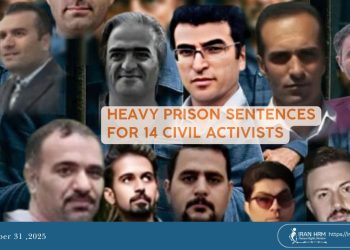The death sentence issued for Mohammad-Mehdi Soleimani, one of those arrested during the 2022 nationwide protests in Mashhad, has been delivered amid lack of access to an independent lawyer, security pressure on his family, and serious judicial opacity. This young man, whose exact age has not even been officially announced, is now at imminent risk of execution.
Case Background
On 21 September 2022, during the protests in the Ab-Kouh neighborhood of Mashhad, a security agent named Rasoul Doust-Mohammadi was killed. Two days later, officials announced the arrest of the “assailant,” yet no information about the identity of the detained person was made public.
On 17 November 2024, the name of Mohammad-Mehdi Soleimani surfaced for the first time. Branch Five of the Criminal Court One of Razavi Khorasan Province, presided over by Judge Mohammad Shoja’-Pour-Fadaki, sentenced him to Qesas (retribution-in-kind) and, on the charge of “possessing incendiary materials,” to two and a half years in prison and 74 lashes.
Judicial Ambiguities and Pressure on the Family
It remains unclear whether Soleimani had access to an independent lawyer during interrogation and trial. No information has been released regarding the evidence presented in court, the reasoning behind the judgment, or expert reports.
His family has been placed under heavy security pressure and prohibited from sharing any details, images, or even his exact age. They have been warned that “publicizing the case will worsen his situation,” a pattern repeatedly seen in cases involving detained protesters.
Cellmate Accounts and the Likelihood of Forced Confessions
According to one former cellmate, Soleimani stated during arrest that he had “found a bloody knife on the street,” which led to his detention.
No official clarification has been issued about this claim, the forensic assessment, or the evidentiary link to the incident. These circumstances increase the likelihood of forced confessions and coercive interrogation.
Violations of Fair Trial Guarantees and Fundamental Rights
Violation of the right to a fair trial
Articles 9 and 10 of the Universal Declaration of Human Rights (UDHR) – Articles 9 and 14 of the International Covenant on Civil and Political Rights (ICCPR)
Violation of the prohibition of torture and forced confessions
Article 5 UDHR – Article 7 ICCPR
Violation of freedom of expression and the personal security of the family
Article 19 UDHR – Article 19 ICCPR
Violation of the right to life in an unfair judicial process
Article 3 UDHR – Article 6 ICCPR
Human Impact and the Risk of Execution
The secrecy surrounding the proceedings and the pressure on the family significantly increase the risk of sudden and unannounced execution. The absence of independent oversight and the withholding of official information place his life in immediate danger.
Call to Action
Given the serious and imminent risk of execution, it is imperative that the United Nations, Special Rapporteurs, Amnesty International, and all international human rights organizations urgently intervene to halt the sentence, ensure an independent review of the case, and guarantee a fair trial. Any delay may lead to another secret execution carried out without public knowledge.







